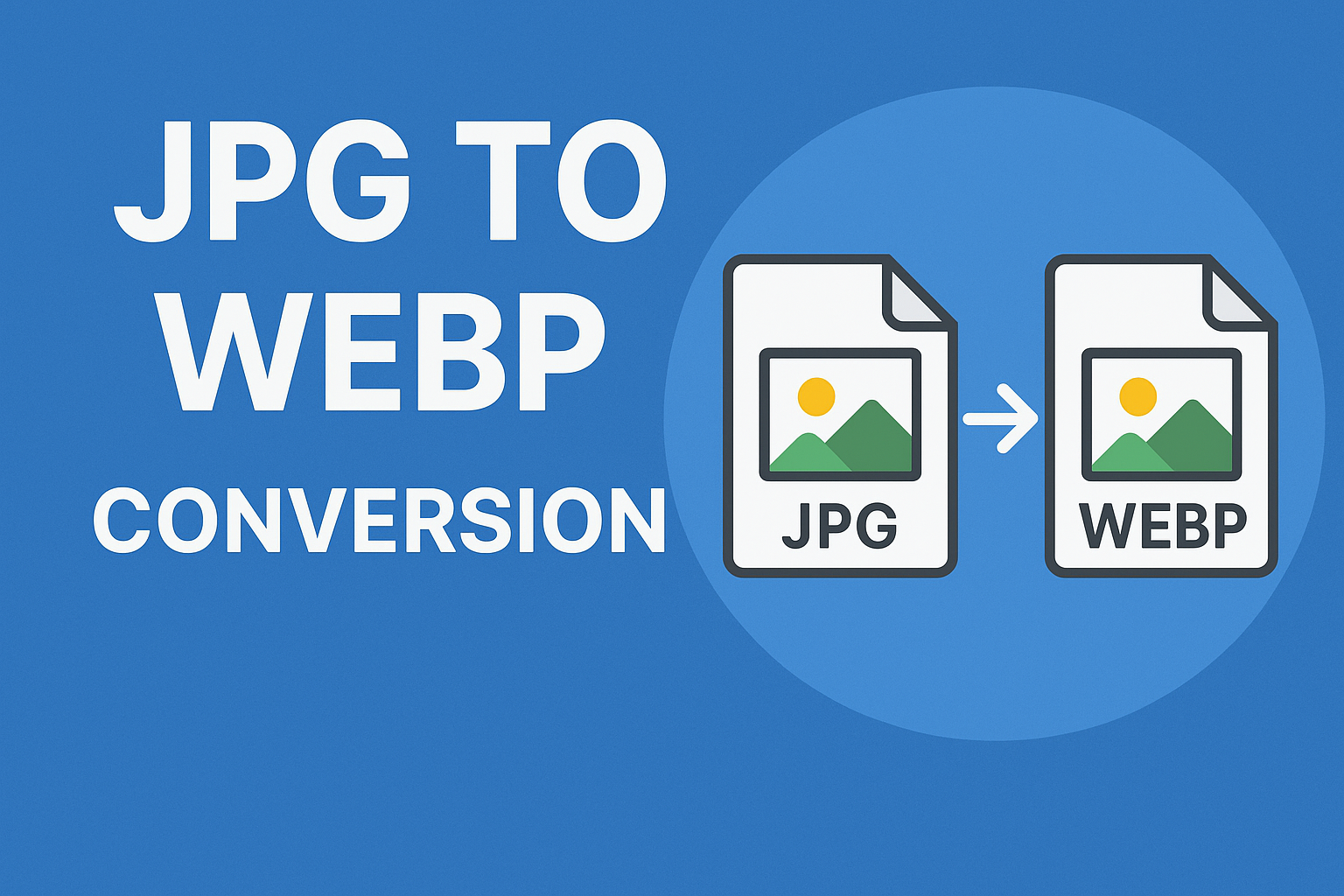
JPG to WEBP
Created on 6 October, 2025 • Image Manipulation Tools • 78 views • 1 minutes read
"Learn how to convert JPG to WEBP for faster websites, smaller file sizes, and better SEO performance. Discover the benefits, tools, and methods to optimize images with WEBP format."
JPG to WEBP Conversion: A Complete GuideIntroduction to JPG and WEBP Formats
In today’s digital world, image optimization is essential for faster website performance and better user experience. JPG (or JPEG) is one of the most commonly used image formats for photos due to its balance of quality and file size. However, with Google’s focus on page speed and web performance, WEBP has become the preferred choice for many websites.
WEBP is a modern image format developed by Google that provides superior compression while maintaining high image quality. Converting JPG to WEBP can help websites load faster, save storage space, and improve SEO rankings.
Why Convert JPG to WEBP?
1. Smaller File Size
WEBP images are up to 35% smaller than equivalent JPGs, reducing the total size of a webpage.
2. Faster Page Loading
A smaller image size leads to faster loading times, which directly impacts user engagement and conversion rates.
3. Better SEO Performance
Search engines like Google consider page speed as a ranking factor. Using WEBP images can boost SEO and improve search visibility.
4. High Quality Retention
Even with smaller sizes, WEBP supports lossless and lossy compression, making it ideal for both photos and graphics.
How to Convert JPG to WEBP
1. Online Converters
There are free online tools that allow you to upload your JPG and instantly convert it to WEBP without installing software.
2. Image Editing Software
Programs like Adobe Photoshop, GIMP, or IrfanView support saving files in WEBP format.
3. Command-Line Tools
Developers often use tools like cwebp (from Google) to batch convert multiple JPG files into WEBP for websites.
4. WordPress Plugins
For website owners, plugins such as Imagify or Smush automatically convert JPG to WEBP for better performance.
Benefits of Using WEBP for Websites
Improved User Experience
Faster-loading images mean users spend less time waiting and more time engaging with content.
Reduced Bandwidth Usage
WEBP images consume less data, which is especially beneficial for mobile users.
Wide Compatibility
Most modern browsers, including Chrome, Firefox, Edge, and Opera, support WEBP format.
Conclusion
Converting JPG to WEBP is a smart move for anyone looking to optimize their website speed, SEO performance, and user experience. With smaller file sizes and excellent quality retention, WEBP is the future of web images. Whether you run a blog, e-commerce store, or portfolio site, adopting WEBP will ensure your site is faster, lighter, and search engine friendly.
Popular posts
-
Barcode readerMisc Tools • 160 views
-
Color pickerMisc Tools • 122 views
-
Exif readerMisc Tools • 117 views
-
SHA-256 generatorGenerator tools • 93 views
-
Ip LookupChecker Tools • 90 views